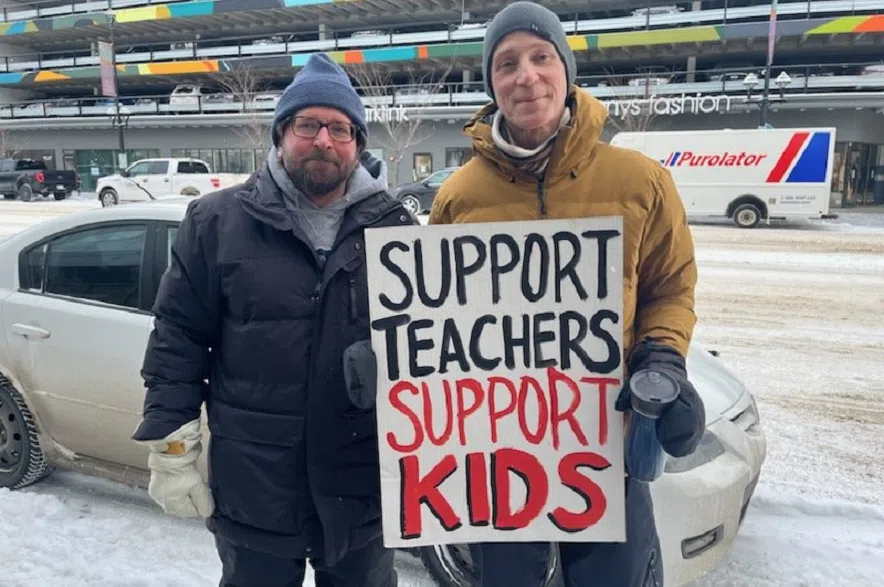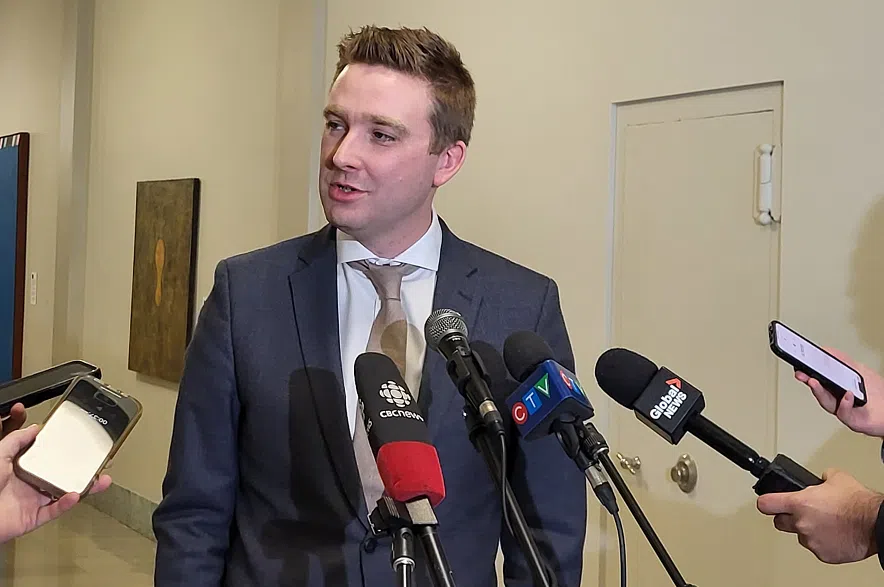As teachers in Saskatchewan continue to push for classroom complexity to be included in their new collective agreement, the provincial government is taking steps to address the issues.
The provincial government and Saskatchewan Teachers’ Federation are back at the bargaining table this week, after deadlocked negotiations led to a number of single-day strikes and a planned withdrawal of lunch-hour supervision. Those measures are currently on hold as both groups return to the table for the first time in months.
The union has drawn attention to the issue of classroom complexity – the number of students who require additional help and support – saying teachers are often struggling to keep on top of the issues without enough additional help in their classrooms.
But while the province has so far refused to build stipulations on classroom complexity into a new contract, the government is working to develop solutions.
Last month, the Ministry of Education announced a $3.6-million pilot program aiming to address disruptive behaviour by students by creating eight “specialized support classrooms” in order to help staff members better manage and de-escalate disruptive behaviour.
“The pilot provides classrooms with specialized support to help students practise self-regulation skills while also addressing the impacts of disruptions in the home classroom,” the ministry explained in a statement.
“These classrooms will have capacity for 15 students and are staffed by a minimum of one teacher and two educational assistants. Other staff support may also be used, including psychologists and counsellors.”
The pilot is to run until the end of the 2024-25 school year.
On Tuesday, the ministry announced the schools that will be participating in the pilot, as selected by their local school divisions:
- Arcola Community School – Regina Public Schools
- St. Augustine School – Regina Catholic Schools
- Father Vachon School – Greater Saskatoon Catholic Schools
- King George School – Saskatoon Public Schools
- McKitrick Community School – Living Sky School Division
- Queen Mary Public School – Saskatchewan Rivers Public School Division
- St. John School – Prince Albert Catholic School Division
- St. Mary School – Light of Christ Catholic Schools
Jeremy Cockrill, Saskatchewan’s education minister, said the ministry is looking forward to working with schools to address the disruptive issues during the pilot project.
“In supporting students, teachers and staff, this pilot aims to reduce interruptions in the classroom and provide additional support to the students who need it,” Cockrill said in a statement.
Jeremy Cockrill, Saskatchewan’s education minister, speaks to reporters in Regina. (Daniel Reech/980 CJME)
But while the pilot may help address the issues, Samantha Becotte, president of the teachers’ federation, said eight special classrooms won’t solve the problems. The union head said she viewed launching the pilot as an acknowledgment by the Ministry of Education that there are serious issues in Saskatchewan classrooms.
“It is a clear admission of government that they agree that class complexity is increasing and needs to be addressed and that additional funds are needed,” Becotte said in a previous interview.
“We also believe that this is government’s way of attempting to yet again sidestep our collective bargaining process.”
The Saskatchewan NDP also criticized the small scale of the pilot, with Education Critic Matt Love saying it will affect less than one per cent of the province’s students.
But while class complexity may not be on the table in this week’s negotiations, teachers will likely see a larger salary offer from the provincial government this week.
The union initially requested an annual increase of two per cent, plus the Consumer Price Index average annual rate for four years. Cockrill has said that would add up to a 23.5 per cent raise.
The government’s initial counteroffer included a seven per cent pay bump over three years, but last week Premier Scott Moe said teachers would be offered the same salary formula used by provincial MLAs.








